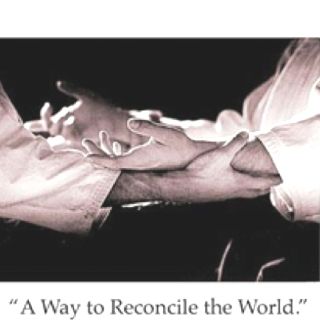Fear
Hope as an Antidote to Fear
Personal Perspective: A source for creative possibilities.
Posted February 27, 2024 Reviewed by Kaja Perina
"One cannot think in terms of percentages or probabilities as long as there is a real possibility — even a slight one — that life will prevail." Erich Fromm
To be human is to be vulnerable and strive to survive. We are designed to deal with inevitable threats by activating our autonomic sympathetic nervous system into a fight-or-flight response.

Maria Popova; in her brilliant weekly online blog The Marginalian (March 22, 2020), weaves together her insights and those of others about how hope is an antidote to helplessness and disorientation. She starts by highlighting Erich Fromm who believed that "Hope is paradoxical. It is neither passive waiting nor is it unrealistic forcing of circumstances that cannot occur. It is like the crouched tiger, which will jump only when the moment for jumping has come.”
Hope can be a verb or a noun, of which I prefer its verb form. This is because when it is active it is manifested in context. It becomes interactive, encourages mutuality, and allows for exciting changes to the resulting narrative. Nora Bateson in her book Combining says "Each context that makes up our lives informs each other, constantly adding information, providing new skills, and ongoingly redefining.”
It is a collaborative process that nurtures thoughtful reflection. These momentary interludes are like being on a precipice or edge that is the prelude to evolutionary possibilities. Nora Bateson further states, "Whereas if the side-by-side-ing places family, ecology, and economy next to each other, what starts to happen is that the deeper plans of the story reframe into an understanding of what is non-trivial, profound, and vital."
According to Fromm the expression of hope is "to be ready at every moment for that which is not yet born, and yet not become desperate if there is no birth in our lifetime." He too understands that it is not easy to express hope in everyday communication.
The word is not the thing nor is the map the actual territory which makes it even more difficult to describe the experience of hope. He suggests "Poetry, music, and other forms of art are by far the best-suited media for describing human experience because they are precise and avoid the abstraction and vagueness of worn-out coins which are taken for adequate representations of human experience.
With hope, we can attest and strive to better times as John Steinbeck pensively shares in his Log from the Sea of Cortez, “Hope is a diagnostic human trait, and this simple cortex symptom seems to be a prime factor in our inspection of our universe." Rebecca Solnit explores this in her definition of hope being "a gift you don’t have to surrender, a power you don’t have to throw away. And though hope can be an act of defiance, defiance isn’t enough reason to hope. But there are good reasons.”

Solnit also believes it is important to stress that hope "is not the belief that everything was, is, or will be fine. The evidence is all around us of tremendous suffering and tremendous destruction."
It is important to emphasize that hope is only a beginning without an ending. It is sustained by mutual learning and it is not a substitute for action, only a basis for it. Here are some prompts to help begin the mutual sharing of hope. Use your poetic expression within all the contexts that you encounter each day:
What is continuing for you that can make you less fearful?
How have you successfully dealt with adversarial events in the past?
How have others helped instill hope in your life?
If you can paint a picture, write a book, or tell a story, how would you describe the process of hope?
In what ways would you want to hear how others describe hope?
Ask yourself what is it like to be with me.
References
Bateson, Nora. (2024). Combining. Axminister, England: Triarchy Press. page 168
Jung, Carl Gustav. (2001). Modern Man in Search of a Soul. London, England: Psychology Press. page 173
Steinbeck, John. (1995).The Log From The Sea Of Cortez. New York, New York: Penguin Classics. page 15


